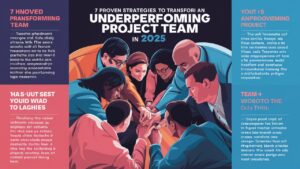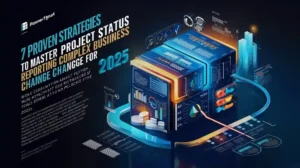If you’ve had frequent job changes in your career, you may need some advice on how to answer the “Why You Change Jobs” question in your interviews. Employers favor candidates with a track record of staying a “reasonable” amount of time at previous jobs. They assume the past predicts the future and so the candidate will stay as long as they’re wanted at their company.
We don’t always get to choose when we change jobs. Sometimes our employers make business decisions that put whole departments or divisions out of work. Sometimes only a few positions are eliminated or changed in such a way that they’re not a good fit anymore.
Sometimes there’s a better opportunity at another company. Sometimes we leave an organization to follow a great boss. Sometimes events in our personal lives force us to change jobs.
While more people are changing jobs at a faster rate, there’s a lingering stigma tied to those with lengthy resumes that haven’t caught up with the times. Just ask the Millennials who are told that making frequent job changes signals character flaws.
You don’t want to sound defensive, but you also don’t want to grovel and beg for the interviewer’s approval. It is tempting to launch into a litany of all the reasons you left every job you ever had.
The workforce is at a point where the growing skills gap has resulted in unfilled jobs, which affects the way organizations find talent. Many companies are expanding candidate criteria beyond the traditional job description to those who have strong core attributes, they then work to train them on the job for specific roles. As a result, personal character and the capacity to learn are becoming hiring attributes.
Profile Review & Recommendation
Expert-Driven Profile Review &
Recommendations

Let our expert look into your CV, Cover Letter, Naukri & LinkedIn Profile to turn your profile into the top 1% of professional profiles.
INR 1,999
- Naukri Profile Review & Recommendations
- Resume Review and Expert Recommendations
- LinkedIn Profile Review & Recommendations
- Cover Letter Templates Download
- Latest Resume Templates Download
- Personalized, tailored feedback
- ETA: 3- 5 Days
Self-Service Profile
Optimization

Access expert-curated guidelines, sample reviewed files, & step-by-step instructions to optimize your CV, Cover Letter, Naukri & LinkedIn Profile.
INR 499
- Guidelines for Profile Optimization (Resume, Naukri, and LinkedIn)
- Access to Sample Reviewed Files for inspiration
- Step-by-Step Instructions to reframe your profile
- Cover Letter Templates Download
- Latest Resume Templates Download
- Immediate access to the files
Think about your skillset — both soft and technical. Then tie that back to the lessons learned and how you’ll apply it to the role you’re interviewing for. The goal for a hiring manager is to sign on a great employee, rather than just a great job applicant on paper.
Give acceptable, verifiable reasons why you changed jobs so frequently, project-oriented work, downsizing, dead-end positions, company sold out, or the department shut down.
You can also say that you’ve become more selective lately, and you hadn’t been able to find the right job until this opportunity came along, explain your employment travels as a quest for a fulfilling job.
If your positions were for temporary agencies, cluster them by responsibility and recast them as evidence of your use of cross-functional skills in many situations.
The apologetic “Please don’t hate me for my line of short-term jobs” approach is beneath you and won’t help you get the job.
Your confident, breezy answer invites the interviewer to ask you more questions about the twists and turns in your amazing career story, but most of them will not.
Exposing yourself to a wider range of experiences is a personal selling opportunity, and companies are buying into it. To capitalize on this when searching for a new job, reflect on your work experience to determine other industries where that experience applies.
Another benefit of working through a staffing company on multiple assignments is the ability to try various jobs and companies without appearing to job hop.
With luck, they will ask you a question about the job you’re interviewing for, instead! That’s the purpose of a job interview, after all.







